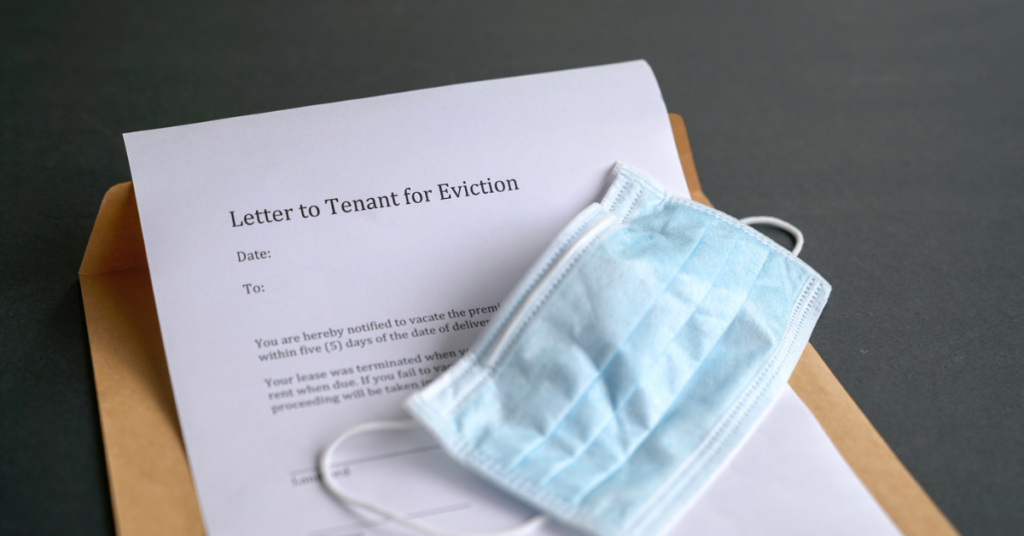
Staying informed about Nevada’s eviction rules is crucial, especially with the latest 2024 updates. If you’re a tenant or landlord in Nevada, understanding these changes can save you from future headaches.
A federal eviction moratorium is a legal order that temporarily stops landlords from evicting tenants. This policy aims to protect renters facing financial hardship, especially during crises like the pandemic we’ve experienced.
This guide provides an overview of the federal eviction moratorium, explaining its significance and implications for individuals’ rights and responsibilities.
Understanding the Basics of Eviction Moratorium
The concept might sound straightforward, but there’s more to it than just eviction protection. It’s not an outright ban. Instead, it sets strict criteria for what can and cannot lead to an eviction. Tenants must still meet specific requirements, and landlords have rights within these rules.
Tenants need to prove their income has taken a hit or that they’ve been slammed with hefty medical bills, among other conditions outlined by the Centers for Disease Control and Prevention (CDC). Landlords aren’t left high and dry either – they can still challenge claims if they believe a tenant doesn’t indeed qualify under the moratorium’s guidelines.
Who Does the Moratorium Protect?

The eviction moratorium safeguards tenants experiencing financial hardship, mainly due to unforeseen circumstances such as the global pandemic. It primarily targets individuals and families who are at risk of homelessness or housing instability if evicted.
This protection extends to renters who can demonstrate an inability to pay rent or find adequate alternative accommodation due to their current income, expected income loss, or extraordinary out-of-pocket medical expenses. The focus is on maintaining housing stability during challenging times when external factors may significantly impact personal finances.
The Role of Documentation
Documentation is crucial in these situations, both for tenants and landlords. Here are some common aspects related to documentation in eviction moratoriums:
Financial Hardship Documentation
- Tenants seeking protection under an eviction moratorium must provide documentation demonstrating their financial hardship.
- This may include proof of job loss, income reduction, medical bills, or other financial challenges that make it difficult for them to pay rent.
Communication with Landlords
- Tenants must often communicate with their landlords regarding their situation and inability to pay rent.
- Written communication, such as emails or letters, may serve as documentation to support the tenant’s claim.
Legal Notices and Documentation
- Landlords may need to follow specific legal procedures when initiating eviction proceedings, even during a moratorium.
- Tenants may be required to respond to eviction notices, and their responses may need to be documented.
Government Assistance Documentation
If tenants receive government assistance or relief, they may need to provide their eligibility and assistance documentation.
Duration and Expiration
- Documentation may be necessary to prove the duration of the financial hardship or the period covered by the eviction moratorium.
- Tenants may need to demonstrate that they continue to meet the criteria for protection under the moratorium.
Eviction Moratorium Timeline

The Federal Eviction Moratorium, initially enacted as a response to the economic fallout from COVID-19, has undergone various extensions and changes. Its purpose was to prevent renters experiencing pandemic-related hardships from being evicted. But what’s been happening with it lately? Let’s take a closer look at its recent timeline in Nevada.
Recent Developments
The Centers for Disease Control and Prevention (CDC) issued an order on September 4, 2020, to temporarily halt residential evictions until July 31, 2021, to prevent the spread of COVID-19. The moratorium applies to all properties, with specific conditions for residents.
To be covered, residents must declare they made efforts to get government assistance, earned no more than specified income limits, cannot pay rent due to income loss, and face homelessness if evicted.
Evictions are allowed for criminal activity or other serious breaches, and rent is still due, with landlords able to charge fees. Enforcement involves federal and state authorities, with potential penalties for individuals and organizations violating the order.
After the federal eviction moratorium and foreclosure protections ended in 2021, there were concerns about a surge in evictions and foreclosures. However, the expected wave of evictions did not materialize. Despite projections that eviction numbers would spike, the actual increase was only 20.4% in the first three months after the moratorium ended.
Several factors contributed to this outcome.
- Some tenants may have moved out voluntarily to avoid legal costs, particularly those with low income, lacking legal representation, or being immigrants.
- Landlords, often viewing eviction as a last resort, may have opted for alternative resolutions during the extended moratorium period.
Additionally, emergency rental assistance was crucial in preventing a sudden eviction surge. Congress allocated $46.6 billion in Emergency Rental Assistance funds, with additional state and local aid disbursed. Varying court procedures in different states and ongoing tenant protections in some regions also contributed to lower-than-expected eviction numbers.
Navigating New Requirements
If you are facing eviction in Nevada, know the eviction process and legal assistance in 2024.
Late Rent Notice
- If rent is overdue by a day in Nevada, a landlord must provide a 7-day Notice to Pay Rent or Quit.
- The tenant has seven days to pay the rent or vacate the property.
- Payment stops eviction, but failure to comply leads to an eviction lawsuit.
Lease Violation Notice
- A tenant can face eviction for violating the lease agreement.
- Landlords issue a 5-day Notice to Comply, allowing the tenant to rectify the violation or move out.
- Lease violations may include damage, smoking in prohibited areas, or housing a pet in a pet-free unit.
Illegal Activity Notice
- In Nevada, landlords issue a 3-day Notice to Quit if a tenant engages in illegal activities on the premises.
- Examples include criminal gang involvement or running an unlawful business.
- Failure to leave results in the landlord filing for an Unlawful Detainer action.
Non-Renewal of Lease Notice
- Landlords cannot evict a tenant without cause in Nevada.
- If a tenant remains after the lease ends, the landlord issues a specific notice based on tenancy type (e.g., 5-day, 7-day, or 30-day Notice to Quit).
- If the tenant stays beyond the notice period, the landlord may file an Unlawful Detainer action.
Renters’ Eligibility Requirements
To qualify for this protection under the moratorium, tenants must meet specific criteria:
- A substantial loss of household income
- Layoffs
- Extraordinary medical costs that would be unsustainable alongside rental payments
Tenants fitting these conditions must affirm their eligibility by providing a declaration form to their landlords, stating under penalty of perjury. This includes their economic situation and efforts made towards making timely partial payments. This step is crucial for legal purposes and to ensure transparency between tenant and landlord relations.
Impact on Landlords

The moratorium is designed with renters in mind, but it’s also essential to consider landlords morally and legally. Many property owners depend on rental income for their livelihood. The moratorium includes provisions for landlords to access federal funds for emergency rental assistance programs (ERAP).
These programs aim to support struggling tenants while ensuring landlords receive compensation through direct aid. This financial support is crucial for landlords to continue operating without significant financial harm.
The success of these programs relies on clear communication between government agencies, residents, and real estate managers. Everyone must understand their rights under updated eviction laws. This knowledge helps maintain a fair balance of power in our community, especially in vibrant cities like Las Vegas and Henderson, where we are dedicated to making property ownership and renting stress-free experiences for all.
Your Trusted Expert Through Nevada’s Eviction Process
Nevada’s Eviction Moratorium 2024 Update reflects ongoing efforts to address housing challenges amid changing circumstances. The extension of protections underscores the state’s commitment to supporting residents facing economic hardships.
Check for updates regularly to stay informed about Nevada’s evolving eviction policies—partner with Faranesh Real Estate and Property Management for personalized guidance and assistance in navigating these changes. Our team is dedicated to keeping you well-informed and providing the support you need in this dynamic real estate environment.
Contact us and take proactive steps for expert advice tailored to your situation.




